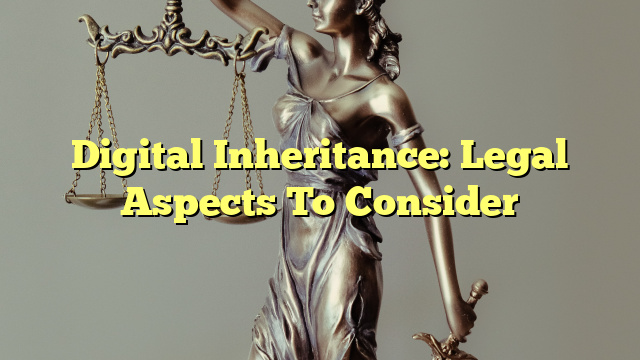Table of Contents
How to Protect Digital Assets After Death
Protecting digital assets after death is an important consideration in today’s digital age. Here are some steps you can take to ensure your digital assets are protected:
- Create a comprehensive list of your digital assets, including online accounts, digital files, and cryptocurrencies.
- Store your list of digital assets in a secure location, such as a password-protected file or a safe deposit box.
- Consider appointing a digital executor in your will who will be responsible for managing and distributing your digital assets after your death.
- Provide clear instructions in your will regarding the handling of your digital assets, including any specific wishes for their disposal or transfer.
- Regularly review and update your list of digital assets to ensure it remains current and accurate.
Are Digital Assets Considered Property?
The legal status of digital assets as property is still evolving. While traditional forms of property, such as real estate or physical possessions, have well-established legal frameworks, digital assets present unique challenges. In some jurisdictions, digital assets may be considered property, while in others, they may not have the same legal recognition.
It is important to consult with a legal professional to understand the specific laws and regulations regarding digital assets in your jurisdiction.
Can Digital Assets Be Inherited?
Whether digital assets can be inherited depends on various factors, including the laws of the jurisdiction and the terms of service agreements with the digital service providers. In some cases, digital assets may be transferable to heirs, while in others, they may be non-transferable or subject to specific conditions.
It is crucial to plan ahead and include provisions for the inheritance of digital assets in your estate planning documents, such as your will or trust. Consult with an estate planning attorney to ensure your digital assets are properly accounted for.
The Legal Nature of Digital Assets
The legal nature of digital assets is a complex and evolving area of law. Digital assets can include a wide range of items, such as online accounts, digital files, cryptocurrencies, and virtual property.
Some key considerations regarding the legal nature of digital assets include:
- Ownership rights: Determining who owns digital assets and how ownership is transferred can be challenging.
- Privacy and security: Protecting the privacy and security of digital assets is crucial, especially in the context of inheritance.
- Terms of service agreements: Digital assets may be subject to terms of service agreements with digital service providers, which can impact their transferability.
- Intellectual property rights: Digital assets may include intellectual property rights, such as copyrights or trademarks, which require specific legal considerations.
Given the complex nature of digital assets, it is advisable to seek legal advice from a professional with expertise in this area to ensure your digital assets are properly protected and accounted for in your estate planning.

